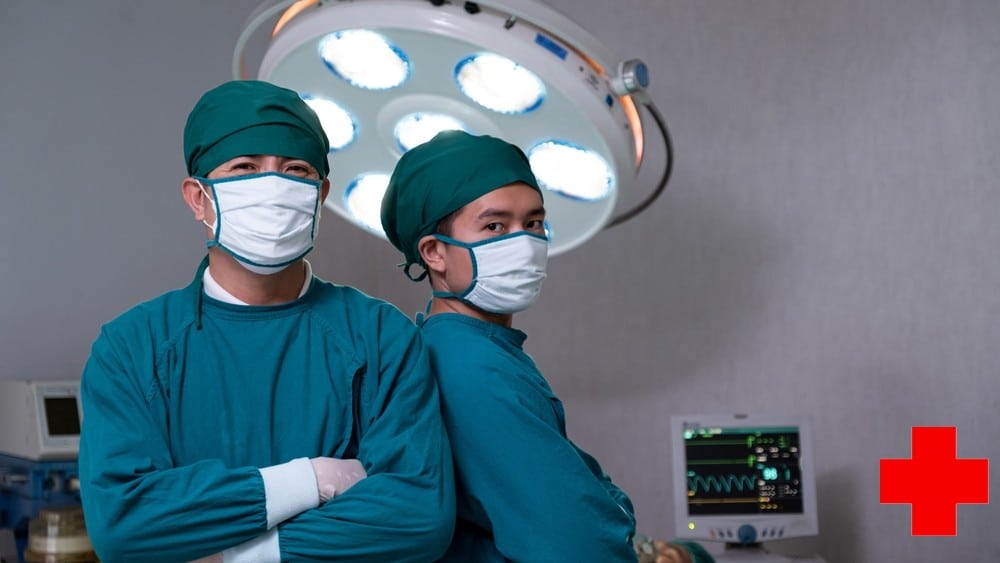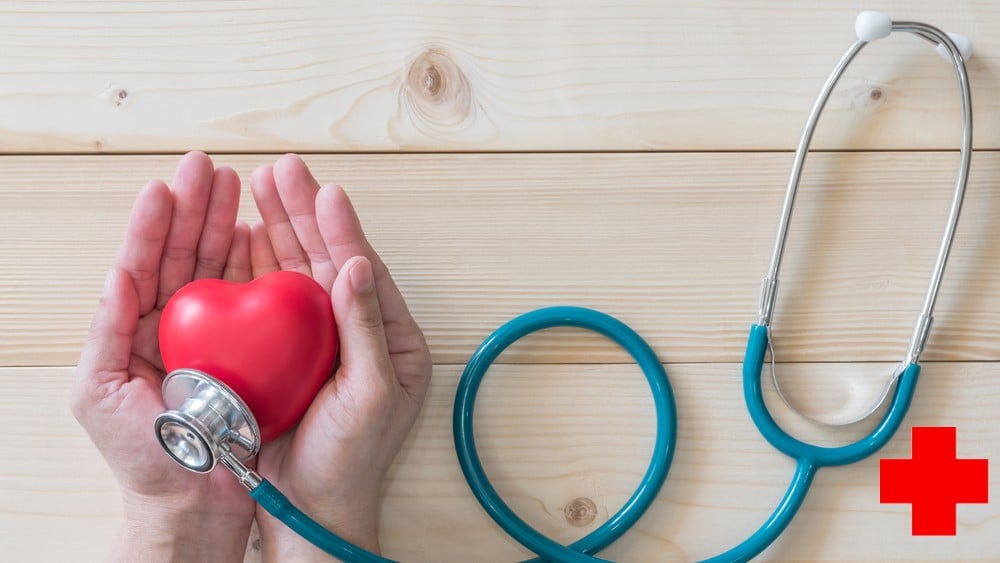Hello all and welcome to Nurse Code, today we discuss extensively, the SANE-A Certifications!
In this article, you will understand how to get a SANE-A certification, how to go about your Sexual Assault Exams, a summary of how to become a Sexual Assault Nurse Examiner, and how important these certifications are to your nursing career path.
We promise that at the end of this read, you would have been greatly informed of the steps to take.
We covered in depth:
- An overview of the Sexual Assault Nurse Examiner Certification
- What is SANE certification?
- All it takes to earn SANE certification
- The importance of SANE training programs and certifications
Let’s dig in!
An Overview of Sexual Assault Nurse Examiner Certification

As documented by the RAINN, the US records a sexual assault every 60-70 seconds.
Nurses who must have been trained to adequately care for victims of assault (both sexual and physical) by offering trauma-informed patient care, interviewing patients, evidence collection, recognizing, and preserving evidence, and connecting them to important community aid for follow-up are known as Sexual Assault Nurse Examiners (SANEs).
SANE-A or SANE-Adult/Adolescent certification is for SANE Nurses who must have been trained to treat the abused adult/adolescent group.
They are classified as Forensic Nurses.
SANE Nurses visit and chat up the abuse and sexual assault victims to perform a full forensic examination and, if necessary, supply expert testimony within legal houses or courts.
The nursing specialty demands that you have particular credentials for assessing adults and children in the psychological and conducting medical forensic examinations on sexual assault preys.
SANE Nurses are responsible for a number of tasks, and they are:
- Perform medical or health triage on people who are urgently in need of it
- Conduct and document medical forensic exams and interviews for sexual assault and abuse
- Assist with emotional issues and offer emotional support
- Examine the patient’s emotional status to see if more therapy or testing is required
- Make referrals to advocacy organizations and also legal help
- Propose to advise, counsel, or make a referral to a reputable counselor
- Conduct a thorough medical forensic investigation
- Collecting forensic specimens and supporting documentation
This article will explain what a SANE Nurse does, how to obtain a SANE-A certification, and also give you a thorough picture of what this certification program entails in case you’re feeling called to the nursing profession and think becoming a SANE Nurse would be the perfect career path for you.
What is SANE-A Certification?

Certification as a Sexual Assault Nurse Examiner (SANE) qualifies Registered Nurses for advanced SANE roles and allows them to specialize in adolescent, adult, and pediatric cases.
The credentials are for SANEs who are currently practicing and desire to specialize in the nursing specialty.
The certificates can confirm a Nurse Examiner’s expertise, skills, and education, as well as their commitment to providing high-quality nursing care to their patients.
The Sexual Assault Nurse Examiner Adolescent and Adult (SANE-A) certification and the Sexual Assault Nurse Examiner Adolescent or Pediatric (SANE-P) certification are the two types of certifications available to aspiring SANEs.
Nurses can select the qualification that best fits their professional interests and goals.
SANE Certification Requirements

The SANE certification confirms that Nurses have received the necessary nursing training and clinical experience to perform advanced SANE functions.
Forensic nursing SANEs that are selected for an audit, in the long run, may be required to demonstrate their qualifications by submitting mandatory licensure and documentation of their training and working hours to the auditor.
There are various processes that must be accomplished before sitting for the IAFN certification exam.
These processes are carried out in order to earn the SANE-A certification provided by the IAFN (The International Association of Forensic Nurses).
These are the steps:
- Have an active nursing license (a valid RN license) in one of the US territories or in the United States
- Have at least twenty-four months of nursing experience as a Registered Nurse
- Have completed a Sexual Assault Nurse Examiner nursing program for adolescents and adults that includes the following:
At least 40 contact hours or 2440 minutes of continuing education in nursing from a recognized training provider, or
Contains at least 40 hours or 2440 minutes of academic study from an approved educational establishment, or the national counterpart, or
Provides at least 64 contact hours or 3840 minutes of continuing education in nursing from a recognized provider, or
Contains at least 64 hours or 3840 minutes of academic study from an authorized educational institution or the national counterpart.
- Within the last thirty-six months, you must have completed over 300 hours or 18000 minutes of practice as a Sexual Assault Nurse Examiner (At least 12000 of the 18000 minutes must be dedicated to SANE-linked practice with adolescent patients and adult patients.)
To accomplish your pathway to SANE certification the first stage is to complete a 40-hour or 2400-minute didactic course that follows the SANE Education Guidelines and has been authorized by IAFN.
This pathway course is part of the Sexual Assault Nurse Examiner Grant Program, although it can also be carried out as part of a curriculum in some School of Nursing educational programs (for individuals who are not interested in seeking the IAFN SANE-A certification through the normal routes) or separately.
When applying, please keep this in mind, as there are several ways and entry points to join the program depending on your needs.
SANE Education Guidelines
The Sexual Assault Nurse Examiner (SANE) Education Guidelines, developed by the International Association of Forensic Nurses, are designed to assist Sexual Assault Nurse Examiners in meeting the medical forensic needs of those who have been affected by sexual violence, including families, individuals, systems, and communities.
Registered Nurses who do medical forensic exams or evaluations must acquire additional practical and theoretical training in order to care for adolescent, adult, and pediatric patients who have been victims of sexual assault or violence.
The Sexual Assault Nurse Examiner follows the recommendations in the Sexual Assault Nurse Examiner (SANE) Education Guidelines to ensure that all patients reporting sexual victimization and violence receive a competent medical forensic examination, taking into account cultural, racial, developmental, gender identity, ethnic, socioeconomic, and sexual factors.
Content of the Coursework
The minimum course hours required to complete the SANE education eligibility standards in order to apply to sit for the Commission for Forensic Nursing Certificate programs and tests are listed in this section.
Rape Nurse Programs should be established as introductory training for those who are new to the profession of forensic nursing and the particular role of the Sexual Assault Nurse Examiner in caring for sexual assault victims.
Regardless of the didactic course delivery method (virtual, n-class, etc.) or the type ( Adolescent/Pediatric, Adolescent/Adult, or Combined Adolescent/Pediatric/Adult), the entire course must be prepared by one accredited training provider and take no more than 15 weeks to complete.
The date(s) of the training, the attendee’s name, the provider’s accreditation statement, and the academic equivalent (or the amount of nursing education contact hours awarded) should all be included on the certificate of completion.
Furthermore, the final course certificate should mention that the participant completed a Sexual Assault Forensic Examiner or Sexual Assault Nurse Examiner program, as well as the appropriate population addressed ( Adolescent/Pediatric, Adolescent/Adult, or Combined Adolescent/Pediatric/Adult).
The didactic and clinical training components are detailed below:
I. Adolescent/Adult
At least 40 hours of didactic coursework from an accredited training provider, academic credit or the national counterpart from an accredited educational establishment, or a nursing education that yields at least 40 continuing nursing education contact hours.
Clinical components, such as simulated clinical experiences, are conducted outside of the classroom and may not be counted toward the 40-hour didactic course.
II. Adolescent/Pediatric
At least 40 hours of didactic coursework from an accredited training provider, academic credit or the national counterpart from an accredited educational establishment, or nursing education that yields at least 40 continuing nursing education contact hours.
Clinical components, such as simulated clinical experiences, are conducted outside of class and may not be counted toward the 40-hour didactic course.
III. Adult/Adolescent and Pediatric/Adolescent Combination
This needs at least 64 hours of didactic coursework from a recognized training provider, academic credit or the national equal from an accredited educational establishment, or nursing education that provides at least 64 continuing nursing education contact hours.
Clinical components, such as simulated clinical experiences, are conducted outside of the classroom and may not be counted toward the 64-hour didactic course.
Each course must offer documentation of course content and training hours in the form of nursing academic credits, nursing contact hours, or a national equivalent.
Continuing Education
In most cases, an individual must fill out the required application, qualify for their state’s continuing education requirements (typically between 14.9 and 30.1 hours), and disburse a small cost to renew their RN license.
Every state has its own standards.
So before going for license renewal check with your state’s board of nursing.
The CEU (Continuing Education Unit) prerequisite will be for the particular state of residence provided the RN license is part of a compact nursing license.
CEUs in drugs, pain management, and child abuse are required in several states.
According to the IAFN, maintaining certification as SANE demands at least 2700 minutes of continuing education every thirty-six months, involving 1800 minutes of attending one of the subsequent events:
- Health Conferences
- Seminars
- Nursing Conventions
- Webinars
- Medical Workshops
In addition to these, 900 minutes of participation in one of the subsequent activities are required:
- Publication in a journal, book, or newsletter of a SANE-related chapter or article
- Activities where SANE-related academic courses must be taught or completed
- SANE nursing curriculum presentations to community or professional organizations
- Presentation on billboards and posters of topics linked to SANE
- Precepting or mentoring other Sexual Assault Nurses
SANE Nurse Training programs
According to the International Association of Forensic Nurses (IAFN), completing a Sexual Assault Examiner Class or training courses is the minimal prerequisite for practicing as a SANE.
The course consists of 40 hours or 2400 minutes of classroom instruction and 40 hours or 2400 minutes of clinical work.
The following are the entrance requirements requested by most accredited training programs for the Adolescent/Adult SANE Certificate:
- A BSN (Bachelor’s Degree in Nursing) or MSN (Master’s Degree in Nursing) from an accredited program
- A cumulative GPA of 3.0 on a 4.0 ranking n a BSN or MSN
- Official transcripts
- Registered Nurse license that is active and unrestricted
- Twenty-four months of full-time experience as a Registered Nurse
- Curriculum vitae (CV) or Resume
- Three letters of recommendation from medical or healthcare professionals
- A 250-word objective statement outlining why you want the credential
Clinical Skill Requirements
Clinical components, such as simulated clinical experiences or encounters, must be undertaken in addition to the didactic (40-hour) curriculum, as stated in the SANE Education Guidelines.
Local training and preceptors might be arranged by students.
For people looking for training beyond their local community, look out for facilities offering one-on-one Clinical Preceptorship experiences or facilities approved by the International Association of Forensic Nurses to conduct a 2-day Clinical Skills Training.
All scholars should verify with their local Board of Nursing to ensure that the clinical education opportunity they choose satisfies any territory/state/province-specific SANE training requirements.
Sexual Assault Certification Examinations

According to forensicnurses.org the certification exams for Nurse Practitioners interested in obtaining a Nurse Sexual Assault Certificate are held twice a year, in April and September, and are open to all students.
Applicants for the SANE-P or SANE-A certification examinations are required to obtain and review the Certification Checklist as well as the Certification Examination Handbook offered by the association prior to submitting their application.
Keep in mind that the association offers materials to assist candidates in preparing for the certification examination.
The test topic references and overview, which may be found in the current Certification Examination Handbook, are excellent beginning points for developing a study strategy for the certification examination.
Is SANE-A Certification Worth it?

There are several compelling reasons to pursue a SANE certification.
If you’re thinking about applying for the credential, here are some things to think about:
Expanded Possibilities
One advantage of the SANE-A and SANE-P certifications is the job prospects they can provide.
Certifications can boost your income potential, open doors to new opportunities, and make you a more valuable resource for patients and their care teams.
The certification can also help you grow your credibility, skills, and passion in your chosen field.
Improved Credibility
Another advantage of obtaining a SANE-A certification is the added credibility it can provide to your resume.
Completing the certification criteria can help you demonstrate that you’re a seasoned professional with advanced abilities and knowledge.
The certification also informs hospitals and hiring or recruiting bodies that your qualifications and clinical experiences have been confirmed by an accredited body.
Maintaining your certification can show your professional development, dedication to your field, and current medical knowledge.
Increased knowledge
Examining patients who have been sexually assaulted can be difficult, especially for those who need to respond compassionately.
The SANE certification might assist you in learning extra competencies and skills that will assist you in performing your work as tactfully and efficiently as possible.
The certification comes with a 40-hour or 2400-minutes training program that can help experienced SANEs improve their field expertise.
The Importance of IAFN SANE Certification

The IAFN SANE Education Guidelines aim to define the current standardized, evidence-based body of scientific knowledge needed to complete a full medical forensic examination and evaluation of a patient who has reported abuse or sexual assault.
Nurses in general, including SANE Nurses, are in high demand.
According to the BLS (Bureau of Labor Statistics), the United States had 3,096,701 Registered Nurses in 2019.
There will be a demand for an additional 3,318,701 Nurses before the end of the year 2029 or a 7-9% increase.
Aside from the ever-increasing demand for Nurses across the country, the statistics on abuse, rape, and incest are staggering.
Every year, more Rape Nurses are required to offer patient care to affected individuals or society.
SANE Nurses work with every one of these patients for evidence collection and administering of required tests.
Conclusion

A nursing certification is an excellent method to help you grow your skills and reputation, raise your earning potential, and improve the level of patient care you can provide to patients.
Because of the sensitivity of the work performed by Sexual Assault Nurse Examiners (SANE), credentials can be even more crucial for those in this profession.
No doubt, the SANE-A, and SANE-P certifications can be valuable additions to your nursing resume, but you may have questions regarding the certification procedure, and the worth of the certifications in general.
With all that answered in this guide, you can go on and enroll for this certification.
FAQs

How Long Does it Take to Become a SANE?
To become a SANE Nurse, you must spend at least forty-eight to seventy-two months in school. To become a Registered Nurse, students must complete an associate degree (ADN) or bachelor’s degree (BSN) program (which takes twenty-four or forty-eight months, respectively) and pass the NCLEX-RN exam.
How Long is SANE Certification Good for?
The certification is valid for three years, and it can be renewed by completing continuing education over that time period or retaking the certification exam and passing.
How to Obtain a SANE Certification in Ohio?
Nurses with at least twenty-four months of full-time experience must have completed at least 2400 minutes of Sexual Assault Education, worked under the supervision of an expert, and passed enough Sexual Assault Examinations to establish clinical competency in order to be certified.
How to Become SANE Certified Nurse in California?
Registered Nurses in California must complete or thoroughly finish a Sexual Assault Examiner Class, which has 2400 minutes of classroom instruction proceeded by an average of 2400 minutes of clinical training to become a SANE Certified Nurse.
What is a SANE Certified Nurse?
A Sexual Assault Nurse Examiner (SANE) Nurse is a highly trained and educated Registered Nurse who works with patients who must have been victims of sexual assault, incest, or abuse. They are classified as Forensic Nurses.
How Many SANE Nurses are there in Texas?
According to the Texas attorney general’s office, which oversees the program and certifies the Nurse Examiners, the state currently has about 312 trained Sexual Assault Nurse Examiners.
Can I Get a SANE Nurse Certification Online?
A 41-hour adult/adolescent online training program is available. This didactic training program for Adolescent and Adult Sexual Assault Nurse Examiners (SANE) is designed for Advanced Practice Registered Nurses and Registered Nurses who want to work as SANEs.
What are the National Certification Requirements for SANE-A?
National Certification SANE-A Eligibility:
– Have completed a Sexual Assault Nurse Examiner nursing program for adolescents and adults
– As a Sexual Assault Nurse Examiner, you must have completed a clinical preceptorship
– As a Sexual Assault Nurse Examiner, within the last thirty-six months, you must have completed over 299 hours of practice
What is SANE-A Certification?
Obtaining certification as a SANE-A indicates that a Sexual Assault Nurse Examiner has proven the highest levels of competence in forensic nursing practice.
What is the Difference Between a SAFE and a SANE?
There is only one distinction between SANE and SAFE. Whereas SANE covers and defines nursing as the provider, SAFE refers to nursing or other fully educated advanced practice professionals.
What is the Difference Between SANE-A and SANE-P?
There are two distinguishable certifications offered under the SANE tag:
SANE-P certification for examiners who work especially with pediatric victims. SANE-A for examiners who work with adolescents and adults. It is not every program, but a significant number of SANE programs are conformed on rape crisis bases rather than on hospitals
What is the Purpose of SANE?
Registered Nurses who must have completed advanced nursing education and SANE training in order to provide comprehensive health care to survivors of sexual assault are known as Sexual Assault Nurse Examiners (SANE). SANEs are sometimes referred to as Forensic Nurse Examiners in some places.
What Happens After a SANE Exam?
Following the SANE exam, Some SANE programs provide patients with specialized follow-up patient care. Some programs contact the patient forty-eight to seventy-two hours following the evaluation to ensure that prescriptions were taken, that no issues remained unanswered, or even to take additional images of injuries that had altered.









